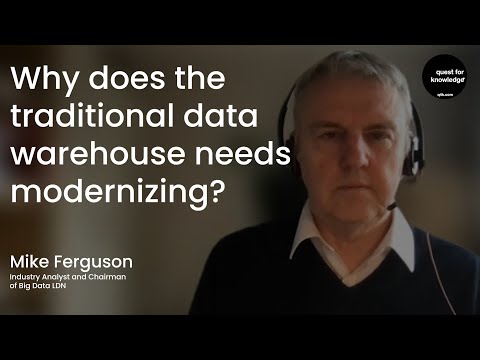Dimensional Modeling
description.
Introduction
The name "Kimball" is synonymous with dimensional modeling. The Kimball Group established the vocabulary and techniques for dimensional modeling, and these techniques show up in today's popular business intelligence, database, and ETL tools.
An excellent dimensional model, or star schema, is the foundation of an excellent data warehouse. This course provides the opportunity to learn the Kimball Approach of dimensional modeling. Having a great dimensional model is necessary, but not sufficient, to implementing a successful business intelligence/data warehouse system. The course also prepares you to successfully implement your business intelligence / data warehouse program by covering the essential elements of the popular Kimball Approach.
You will learn practical techniques for designing, developing, and implementing your dimensional model, from the basics to the most advanced practices. Concepts are taught through a combination of lectures, case studies, and small group exercises. Our goal is to provide you with the skillset you need to lead a dimensional modeling effort at your organization or participate in the system's successful implementation.
Who should attend
This course is designed for data warehouse architects, data modelers, database administrators, business analysts, and ETL or BI application developers and designers.
Prerequisites
You should be:
- Able to name and describe in a few words the main operational systems of his or her organization
- Able to name and describe in a few words the main business concerns of the end-users in his or her organization
- Somewhat familiar with basic data modeling concepts such as referential integrity
However, the absence of these abilities and familiarity will not keep you from profiting from the course.
outline.
Kimball Approach Overview
- Introduction to the Kimball Approach
- Focus on the business
- The Kimball Lifecycle
Gather Business Requirements
- Program planning and management
- Gather requirements from the user community
- Gain consensus on priorities
- Document the business requirements
Dimensional Modeling Fundamentals
- Defining dimensional modeling
- Introduction to dimensions and facts
- Design for the enterprise with conformed dimensions
Case Study: Retail Sales
- Transactional fact tables
- Surrogate keys
- Date and Time dimensions
- Hierarchies
- Star vs. snowflake dimensions
- Identifiers, NULLs, and Header dimensions
Technical Architecture
- Alternative technical architectures
- The Kimball architecture
Workshop: Content Marketing
- Roles of dimensions
- Multiple fact tables
- Factless fact tables
- Multiple time zones
- Generic dimensions
- Comments and other freeform text
Case Study: Financial Accounts
- Junk dimensions
- Semi-additive facts
- Multiple currencies
- Designing to support "updates" to facts
- Periodic and accumulating snapshots
- Conformed dimensions and drill-across
Slowly Changing Dimensions
- Type 0: Retain original
- Type 1: Restate history
- Type 2: Track history
- Type 3: Add a new column
- Type 4: Mini-dimension
- Types 5-7: Having it both ways
Workshop: Child Protective Services
- Multivalued relationships
- Uneven dimension hierarchies
Case Study: Insurance Claims
- Simultaneous dimensions and facts
- Tracking the history of a snapshot
- The dimensional modeling process
Workshop: Higher Education
- Pull it all together
ETL for Dimensional Modeling
- Overview
- Plan
- Extract
- Clean and conform the data
- Deliver dimension and fact tables
- Deploy, operate, and manage the BI/DW system
dates & price.
Course
Delivery Method
Dates
Location
Price
pricing.
The fee for this course is EUR 2.175,00 (+VAT) per person.
We offer the following discounts:
- 10% discount for groups of 2 or more students from the same company registering at the same time.
- 20% discount for groups of 4 or more students from the same company registering at the same time.


